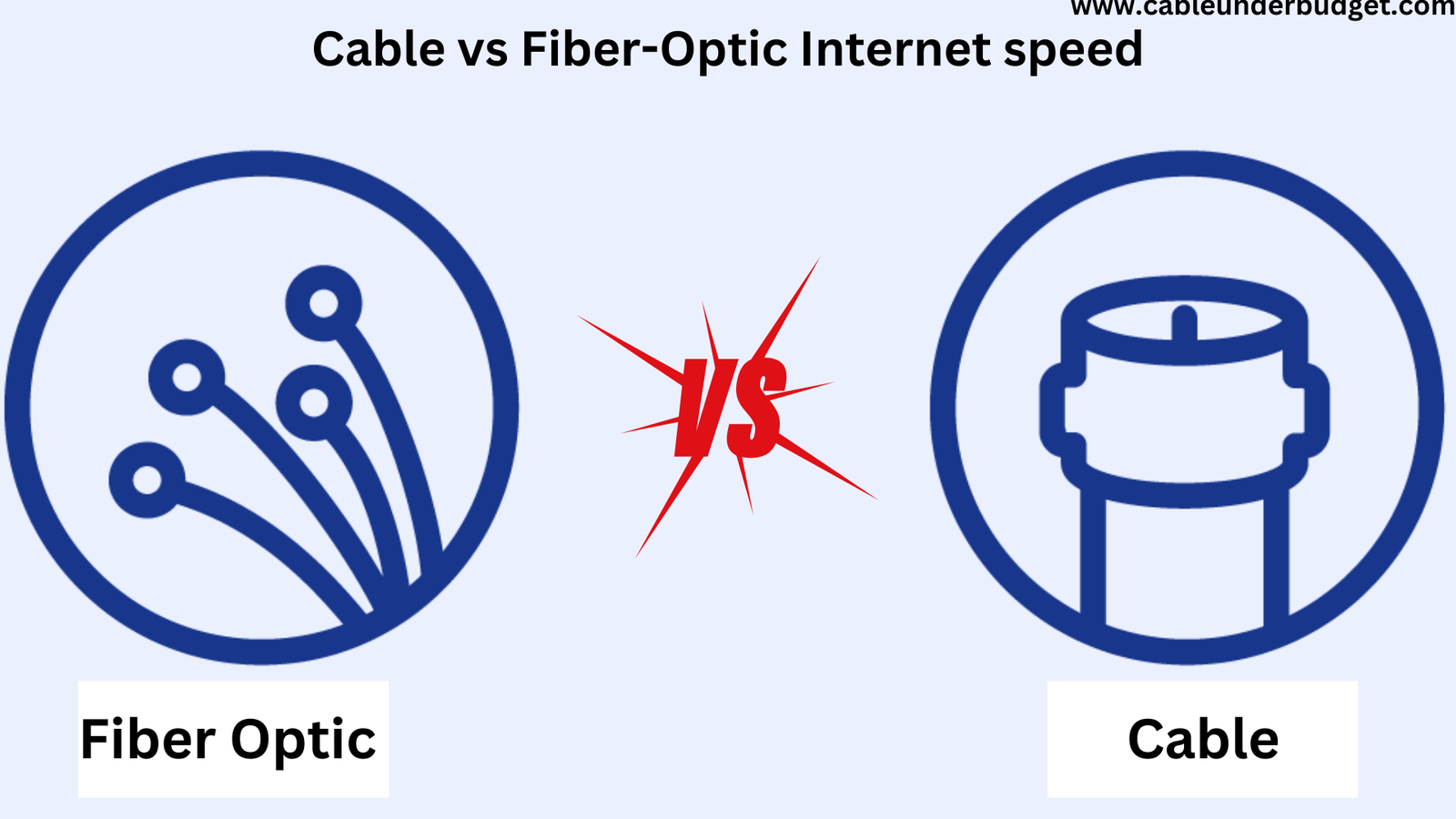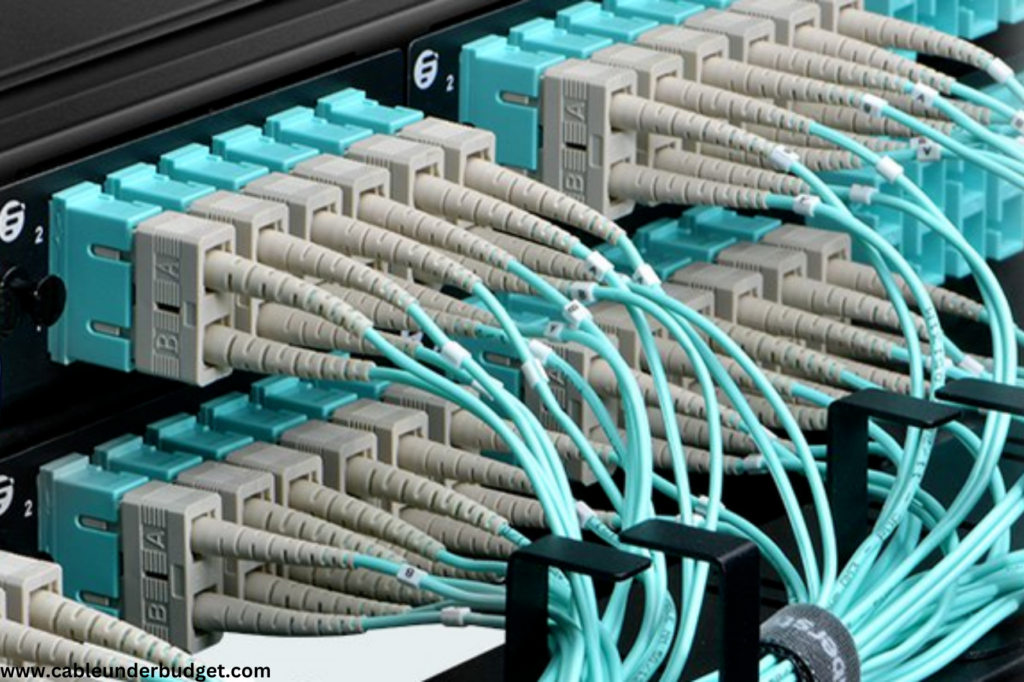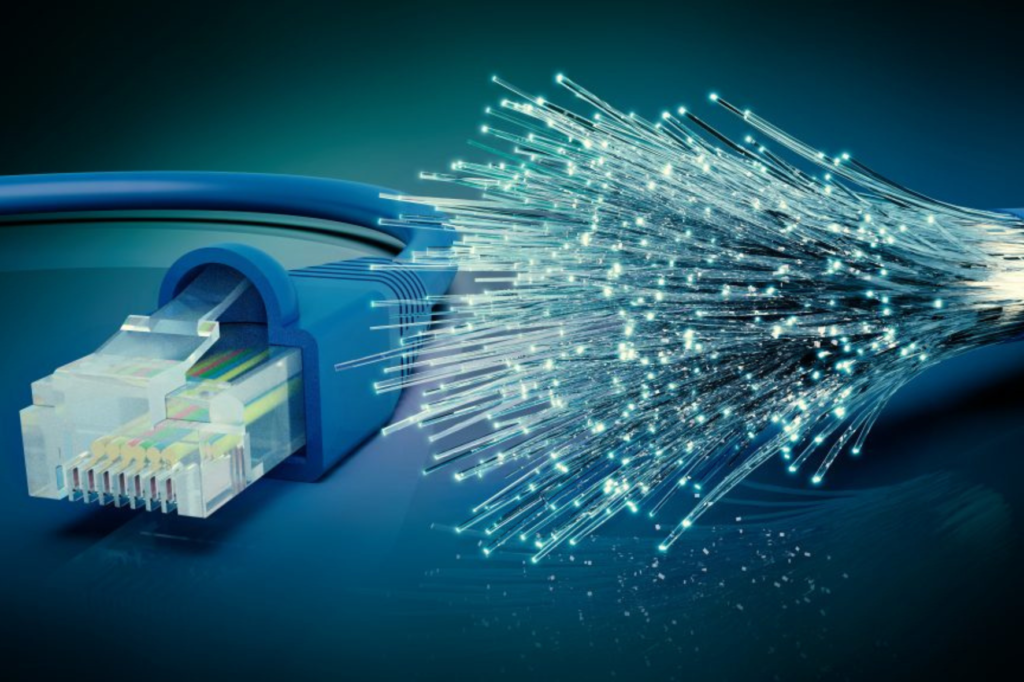Contents
- 1 Cable vs Fiber Optic Internet Speed
- 1.1 Cable Internet Speed
- 1.2 Advantages of Cable Internet Speed:
- 1.3 Limitations of Cable Internet Speed:
- 1.4 Fiber Optic Internet Speed
- 1.5 Advantages of Fiber Optic Internet Speed:
- 1.6 Limitations of Fiber Optic Internet Speed:
- 1.7 Conclusion
- 1.8 FAQs
- 1.9 Q: Which type of internet, cable, or fiber optic, offers faster speeds?
- 1.10 Q: Are there any limitations to fiber optic internet speed?
- 1.11 Q: Is cable internet speed consistent?
- 1.12 Q: Can I get bundled services with both cable and fiber optic internet?
- 1.13 Q: Which type of internet is more reliable in terms of speed consistency?
- 1.14 Q: Is fiber optic internet available in rural areas?
- 1.15 Q: Can I upgrade from cable to fiber optic internet?
- 1.16 Q: Does fiber optic internet cost more than cable internet?
- 1.17 Q: How can I determine which type of internet is best for my needs?
Cable vs Fiber Optic Internet Speed
In today’s digital age, internet speed plays a crucial role in our daily lives, whether for work, entertainment, or communication. When it comes to choosing between cable and fiber optic internet, understanding the differences in speed is essential. In this article, we’ll delve into the specifics of cable vs fiber optic internet speed to help you make an informed decision.
Cable Internet Speed
Cable internet utilizes coaxial cables to deliver internet service to households and businesses. The speed of cable internet can vary depending on factors such as the quality of the infrastructure, the number of users in the area, and the distance from the provider’s network hub.
Advantages of Cable Internet Speed:
-
- High Download Speeds: Cable internet typically offers high download speeds, making it suitable for streaming high-definition videos, online gaming, and downloading large files.
-
- Availability: Cable internet is widely available in urban and suburban areas, providing access to high-speed internet for many consumers.
-
- Bundling Options: Many cable internet providers offer bundled packages that include internet, television, and phone services, providing convenience and potential cost savings.

Limitations of Cable Internet Speed:
-
- Upload Speeds: While cable internet offers fast download speeds, upload speeds may be slower in comparison, impacting activities such as video conferencing and uploading large files.
-
- Speed Consistency: The speed of cable internet can fluctuate depending on factors such as network congestion and the time of day, leading to potential slowdowns during peak usage times.
Fiber Optic Internet Speed
Fiber optic internet utilizes thin strands of glass or plastic fibers to transmit data using light signals. This technology offers significantly faster speeds compared to traditional copper-based cable internet.
Advantages of Fiber Optic Internet Speed:
-
- Blazing-Fast Speeds: Fiber optic internet provides incredibly fast download and upload speeds, ideal for bandwidth-intensive activities such as streaming 4K videos, online gaming, and cloud computing.
-
- Symmetrical Speeds: Unlike cable internet, which often has faster download speeds than upload speeds, fiber optic internet offers symmetrical speeds, ensuring seamless performance for both uploading and downloading data.
-
- Reliability: Fiber optic cables are less susceptible to interference and signal degradation, providing a more stable and consistent internet connection.
Limitations of Fiber Optic Internet Speed:
-
- Availability: Fiber optic internet may not be as widely available as cable internet, particularly in rural areas or regions with limited infrastructure.
-
- Installation Costs: The initial installation of fiber optic infrastructure can be more expensive compared to cable internet. However, prices have been decreasing as the technology becomes more prevalent.
Conclusion
In conclusion, the choice between cable and fiber optic internet speed depends on your specific needs and circumstances. Cable internet offers high download speeds and widespread availability, making it suitable for many consumers. However, if you require blazing-fast speeds, symmetrical upload and download capabilities, and superior reliability, fiber optic internet may be the better option.
Ultimately, consider factors such as your location, internet usage habits, and budget when choosing between cable and fiber optic internet speed. Whichever option you select, ensure that you choose a reputable internet service provider that offers reliable service and responsive customer support.
FAQs
Certainly! Here’s a FAQ section regarding cable vs fiber optic internet speed:
Q: Which type of internet, cable, or fiber optic, offers faster speeds?
Q: Are there any limitations to fiber optic internet speed?
Q: Is cable internet speed consistent?
Q: Can I get bundled services with both cable and fiber optic internet?
Q: Which type of internet is more reliable in terms of speed consistency?
Q: Is fiber optic internet available in rural areas?
Q: Can I upgrade from cable to fiber optic internet?
Q: Does fiber optic internet cost more than cable internet?
Q: How can I determine which type of internet is best for my needs?


Pingback: Cutting-Edge Connectivity: How Much Does Installing Fiber Optic Cable in Home Cost? 1